The leader of Burma's military junta considered making a $1bn (£634m) bid to buy Manchester United football club around the time it was facing rising anger from the United Nations over its "unacceptably slow" response to cyclone Nargis.Than Shwe, commander in chief of the armed forces and a fan of United, was urged to mount a takeover bid by his grandson, according to a cable from the US embassy in Rangoon. It details how the regime was thought to be using football to distract its population from ongoing political and economic problems.
The proposal was made prior to January 2009; only months earlier, in May 2008, the Burmese junta had been accused of blocking vital international aid supplies after Nargis struck, killing 140,000 people.
Than Shwe reportedly concluded that making a bid for United might "look bad" at the time, but the revelation that the proposal was even considered is likely to fuel criticism of the regime's cruelty. The senior general instead ordered the creation of a new multimillion dollar national football league at the same time as aid agencies were reporting that one year on, many survivors of the cyclone still lacked permanent housing, access to clean water, and tools for fishing and agriculture.
The mooted price tag for Manchester United was exactly the same as the aid bill to cover the most urgent food, agriculture and housing for the three years after the cyclone, as estimated by international agencies including the UN. The proposal revealed that the regime, which is increasingly exploiting its oil and gas reserves, felt confident of finding such a sum. According to Forbes magazine's valuation of the club at the time, $1bn would have been enough to acquire a 56% controlling stake.
"One well-connected source reports that the grandson wanted Than Shwe to offer $1bn for Manchester United," said the June 2009 cable to Washington. "The senior general thought that sort of expenditure could look bad, so he opted to create for Burma a league of its own."
Than Shwe then reportedly coerced and bribed eight leading business and political figures to establish teams and ordered them to spend large sums on imported players and new stadiums.
The cable revealed that in January 2009, selected Burmese business people were told "that Than Shwe had 'chosen' them to be the owners of the new professional soccer teams. [The informant, a top executive at one of the sponsor companies] said the owners are responsible for paying all costs, including team salaries, housing and transportation, uniform costs, and advertising for the new league. In addition, owners must build new stadiums in their respective regions by 2011, at an estimated cost of $1m per stadium."
The Magway team was spending $155,000 a month on salaries while the Kanbawza team, linked to a bank, had budgeted $2m for the 2009 season. Rangoon United hired five players from Africa and Delta United recruited several Argentinians.
"When asked why the owners would participate in such an expensive endeavour, [an executive with one company sponsor] observed that they had little choice," the embassy reported. "'When the senior general asks someone to do something, you do it with no complaints,' he stated."
He added that several of the business people expected to receive incentives from the regime, such as construction contracts, new gem and jade mines, and import permits, which would more than offset their costs. The owners of the clubs in the Burma national football league, which launched on 16 May 2009, include "regime crony" Zaw Zaw, who also chairs Burma's football federation and drew up plans for the league with the senior general's grandson.
"Zaw Zaw hired Senior General Than Shwe's grandson to play on the team," a separate cable adds.
But according to the dispatch, "many Burmese businessmen speculate the regime is using it as a way to distract the populace from ongoing political and economic problems or to divert their attention from criticism of the upcoming 2010 elections".
Political football
From Sierra Leone to Iran, football is more than a sport for many governments.
Cables in June 2009 reveal Iran's fear that public unrest over a national football team loss "could add fire to the increasingly volatile political demonstrations" during the presidential election.
Such was President Mahmoud Ahmadinejad's political investment in Team Melli that spies were said to keep tabs on key players. He loaned the squad his presidential plane to travel to North Korea for a match after personally firing the coach Ali Daei when they lost to regional rivals, Saudi Arabia. But fans have rebelled, chanting "we don't want political soccer" at one game.
In Jordan, hooliganism at a match in July 2009 between Al-Wahdat (Palestinian fans) and Al-Faysali (Jordanian fans) revealed the "ugly side of Jordanian ultranationalism" as the Palestinian origins of both the queen and the crown prince were denigrated. One contact warned US diplomats that such extremism "would be difficult to contain now that it was publicly expressed".
Even in Azerbaijan, football clubs mean status for regime figures. The son of Kamaladdin Heydarov, the oil-rich nation's minister for emergency situations, owns Gabala football club: "a small-scale effort to replicate the Chelsea antics of Russia's Roman Abramovich".
"The Gabala squad is a virtual United Nations team, with players from across Europe, Latin America and Africa – the best team money can buy, at least for central Azerbaijan."
Meanwhile the US embassy in Sierra Leone believes the country's football manager, Mohamed Ahmed Sesay, may have used the job "to facilitate narcotics trafficking", after he was arrested during a cocaine trafficking investigation.
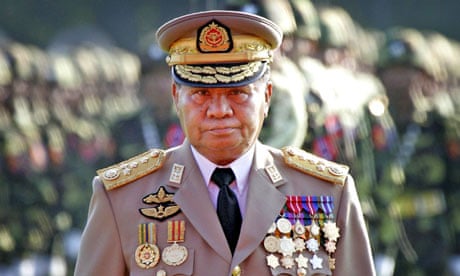
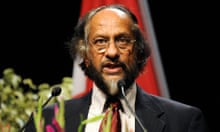
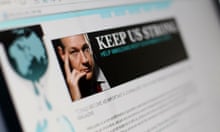
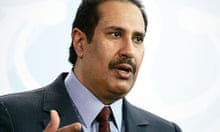
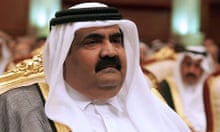
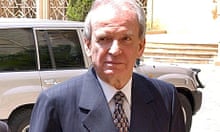
Comments (…)
Sign in or create your Guardian account to join the discussion